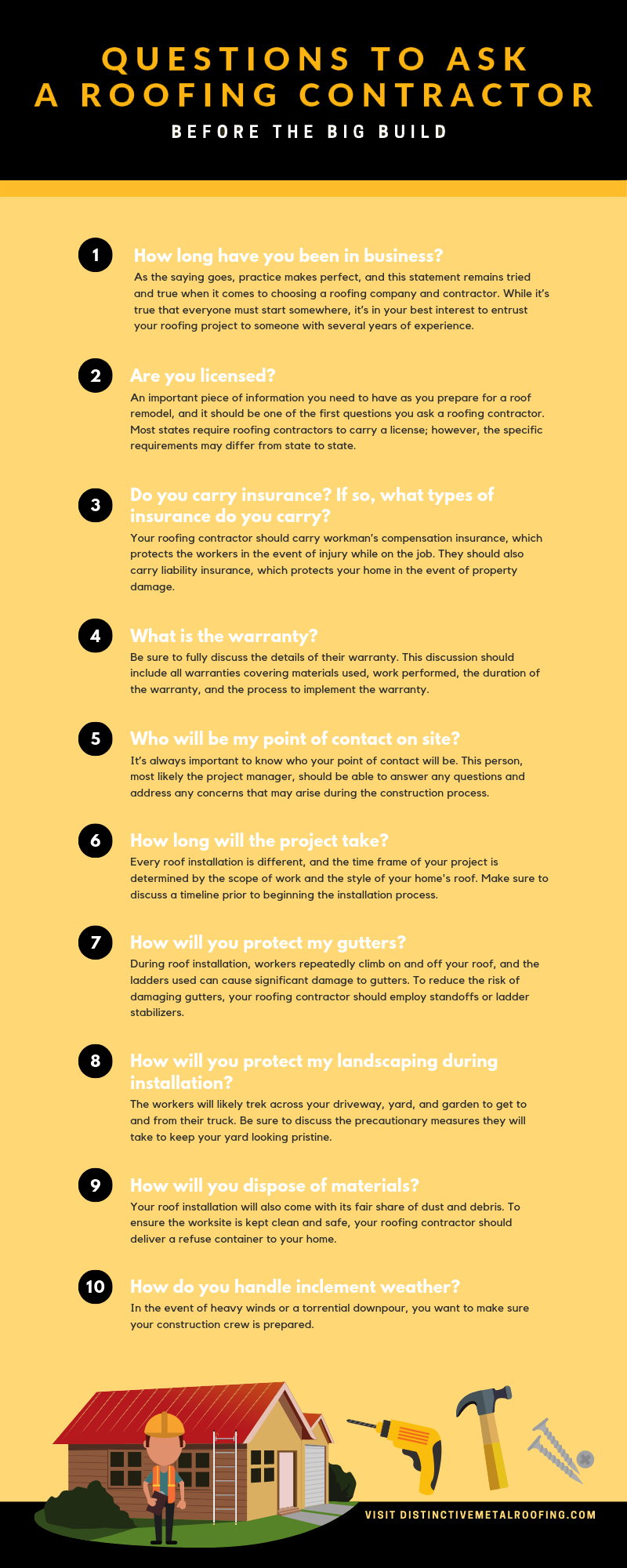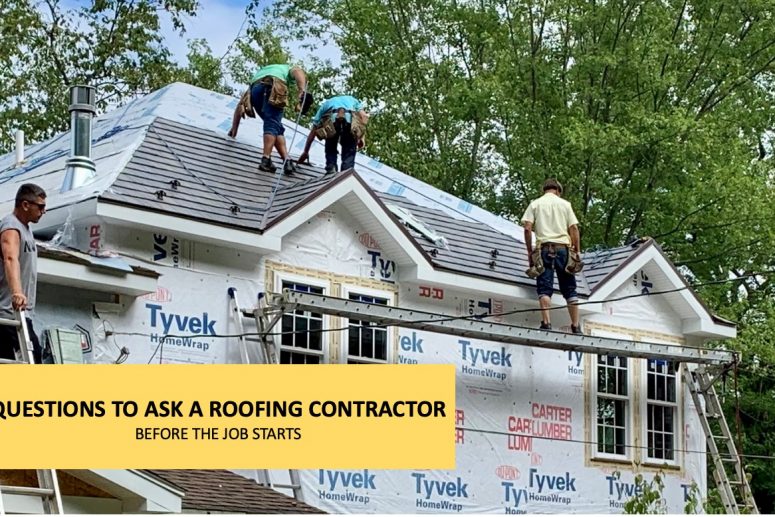Table of ContentsOwner Vs Contractor – How Do You Tell Who Is ResponsibleTop five Ways Not To Hire A Roofer! What To Look For In A Roofing ContractChoosing The Right Roofing Material For Your HomeRoofing Contractor Vs Roofer Vs Roofing Company
If the shingles on your roofing are disappearing as rapidly as cake at a toddler's birthday celebration, it's probably time to change your roofing system. Great Day Improvements has actually created this list of 15 questions that every property owner ought to ask a potential roofing professional prior to signing an agreement, so you can guarantee the company you hire is reputable and capable of getting the roofing done right the very first time around.
Question You Should Ask: Are you licensed? Answer You Want to Hear: Yes, in the majority of states Why You Wish to Hear It: Many states require a roofing professional be licensed in the state; nevertheless, all states are different. This means one code may be needed in Boston while another might be needed in Nashville.
If professionals, consisting of roofing professionals, are needed to be certified in your state, just work with those who are so you have some recourse in case things fail. Make sure the license depends on date. 2. Question You Should Ask: Do you have worker's comp insurance coverage? Answer You Wish To Hear: Yes Why You Desire to Hear It: At one time employers with 3 or less employees didn't have to provide worker's settlement insurance; now they do by law.
 How To Choose A Roofing Contractor
How To Choose A Roofing Contractor
The reason? Insurance coverage isn't low-cost, and some would rather take their possibilities. The issue, naturally, is when the chance is taken on your home and a worker ends up being injured. If you employ a business that does not use employees workman's payment and someone gets hurt on your home, you might discover yourself dishing out thousands of dollars to spend for medical costs.
How To Deal With Your Roofer
To secure yourself, make certain the business you employ guarantees each employee that will be present on your home. 3. Concern You Should Ask: Do you carry general liability insurance? Answer You Want to Hear: Yes Why You Desire to Hear It: Worker's payment covers the staff members on your home; basic liability insurance covers your actual residential or commercial property.
When it comes to insurance, though, do not simply take the roofer's word for it. Ask to see an insurance coverage certificate. This certificate will note your name and address as an additional insured, so if something takes place on the task, you and all of your hard-earned home - are covered. If you still feel hesitant, call the insurance provider and ask.
Concern You Should Ask: Will you eliminate my old roofing system? Answer You Want to Hear: Yes Why You Wish To Hear it: Some roofers will claim to save time and money by examining, with their eyes, the old roof, and then, if all looks well, shingling over it. However, unless the old shingles are brought up you will never ever understand if you have soft spots or rotten wood below the present shingles.
Don't let a roofing professional location a new roofing system on your home until they have actually used up the old roof. 5. Question You Should Ask: Are you going to install drip edge or edge metal when you set up the brand-new roof? Answer You Wish To Hear: Yes Why You Want to Hear It: Drip edge or edge metal is a small piece of aluminum placed under the shingle where it comes off of the roof.
8 Questions To Ask Your roofer Before Signing A Contract
 Owner Vs Contractor – How Do You Tell Who Is Responsible
Owner Vs Contractor – How Do You Tell Who Is Responsible
If a drip edge or edge metal is not set up, you will incur issues associated with water damage. However, unless you particularly inquire about drip edge prior to the task, some roofing professionals will skip over this part of the process. For this factor, it is vital you inquire about drip edge prior to working with a roof business.
Question You Should Ask: Will you utilize ladder stabilizers or standoffs to protect my gutters when you install my roofing system? Answer You Want to Hear: Yes Why You Want to Hear It: You may not think of it as you ponder your brand-new roofing, however the approach the company utilizes to get onto the roof is practically as important as the type of roof you choose.
Stabilizers resemble huge arms that rest on the roofing or on the side of the roof. This keeps the weight of the extension ladder, which can weigh a couple of hundred pounds, off of your gutters. Without some type of standoff or stabilizer, you might end up with a fantastic roof however a torn up, damaged apart guttering system around your house at the end of the job.
7. Concern You Should Ask: Do you bring a container for refuse material? Address You Wish To Hear: Yes Why You Desire to Hear It: Decline from the old roofing system, such as shingles, will require to be positioned somewhere as it comes down. The business you employ must bring a container to the task site to consist of the refuse.
Roofing Repair Tips: How To Choose A Good Roofing Company
Useful Content: https://www.dcroofingarizona.com/residential/roofing-contractor-tucson/
8. Concern You Should Ask: Where will you put the container for the refuse? Answer You Want to Hear: Rely on your residential or commercial property situation, however. Why You Wish to Hear It: Asphalt driveways can break under severe pressure. If the business puts the container on your driveway, you might end up with a lot more to repair when the job is over.
If in the driveway, what are the provisions in case the driveway fractures? If not in the driveway, then where will the container be placed? 9. Concern You Should Ask: What will you do in the case of inclimate weather condition throughout the task? Question You Want to Hear: Cover the job project in tarpaulins or plastic covers Why You Want to Hear It: Let's face it: the weather condition person is not always right.
If the prettiest of days turns into a rain storm, what will the roofing business do to protect the interior of your house? Make certain your roofing contractor has a strategy for this. Your roofing system ought to be covered in some type of plastic sheeting or tarpaulin to ensure it, and everything beneath it, stays dry.